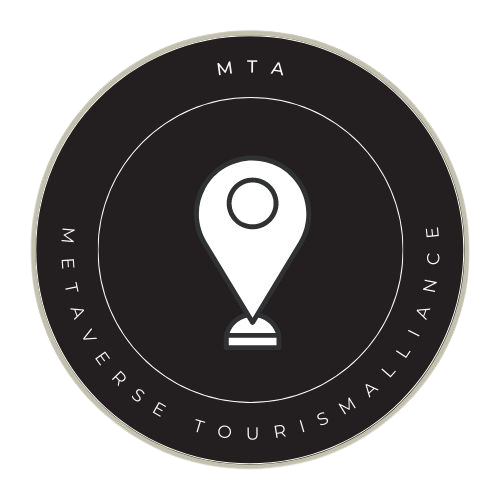This week we attended the ARVR Innovate Summit in Dublin, Ireland. This annual gathering focuses on the latest projects, research and news from our immersive world. At the summit we had a chance to speak with some of the most innovative projects in the virtual space coming out of Europe. There was VR for health research, VR for mindfulness and of course VR for experiences.
We took the time to try out all of the latest hardware including the Oculus Quest and the Apple Vision Pro. However, doing breathing exercises in a virtual forest does not really work in the middle of an exhibition hall. The scale of content creation and interesting methods of storytelling through these experiences is incredible. However, what was interesting was that in many conversations the question of how to monetize our immersive worlds and the metaverse was a question that nobody seemed to have the answer for.
This is where blockchain and the role of NFTs in the future of travel gets interesting. With the rise of the metaverse and virtual tours, the industry is presented with new business opportunities. Tourism professionals and cultural heritage experts are no longer confined by physical limitations.
Let’s take a closer look into the innovative ways in which tourism providers can capitalize on this burgeoning market:
- Premium Virtual Tours
Virtual tours offer travelers the chance to visit destinations worldwide without ever leaving their living room. By offering premium virtual tours with enhanced features such as live guides, interactive elements, and exclusive content, tourism providers can attract a diverse audience willing to pay for an unforgettable digital experience. Whether it’s a guided tour of historical landmarks or a virtual safari through the African savannah, the key lies in delivering value-added experiences that transport participants to new and exciting destinations. - Virtual Travel Packages
Just as traditional travel packages combine flights, accommodations, and activities, virtual travel packages can bundle together a variety of digital experiences to create a comprehensive itinerary. From virtual cooking classes and language lessons to cultural workshops and live performances, the possibilities are endless. By offering tiered packages with different levels of access and customization options, tourism providers can cater to the diverse interests and budgets of their audience while maximizing revenue potential. - Virtual Reality Immersion
Virtual reality (VR) technology has the power to transport users to far-off destinations with unprecedented realism and immersion. By leveraging VR headsets and immersive storytelling techniques, tourism providers can offer premium virtual travel experiences that captivate the senses and evoke a sense of wonder. Whether it’s diving into the depths of the Great Barrier Reef or exploring the streets of Tokyo at night, the potential for monetization lies in offering high-quality, truly immersive experiences that leave a lasting impression on participants. - Virtual Destination Events
Just as physical events draw crowds of attendees, virtual destination events can attract a global audience eager to experience the best that a destination has to offer. Whether it’s a virtual music festival featuring local artists or a digital food and wine tasting showcasing regional cuisine, tourism providers can monetize these events through ticket sales, sponsorships, and virtual merchandise. By creating memorable digital moments that resonate with participants, tourism providers can foster a sense of community and belonging in the virtual realm. - Virtual Souvenirs and Merchandise
No travel experience is complete without souvenirs to commemorate the journey. In the digital world, virtual souvenirs and merchandise offer travelers a tangible memento of their virtual adventures. Whether it’s virtual postcards, digital artwork, or exclusive in-game items, tourism providers can monetize these offerings by tapping into the emotional connection that travelers have with their virtual experiences. By offering limited-edition collectibles and exclusive merchandise, tourism providers can create additional revenue streams while enhancing the overall virtual travel experience.
By embracing these emerging technologies and exploring creative ways to engage travelers in the digital realm, tourism providers can unlock new revenue streams and shape the future of travel in a rapidly evolving landscape. Join us at the MTA as we navigate the hybrid future of tourism.

